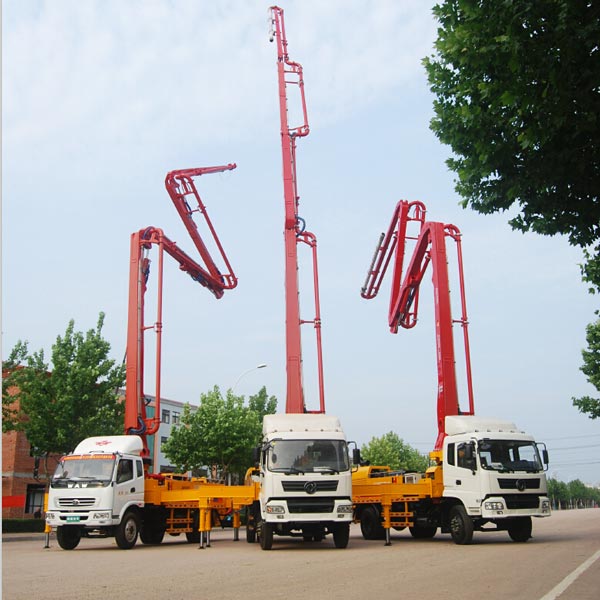If you’re thinking of purchasing a concrete mixer pump then you’ve probably given some consideration to whether you desire a trailer-mounted pump or otherwise not, whether you will prefer gas, diesel or electric, the type of valve, and the output rate as well as the sort of mix that can be used with the pump. Lots of people think that utilizing a boom pump is the greatest idea as a result of long range and also the high throughput, but it isn’t always by far the most sensible option.
One thing that you have to remember is that boom pumps, while able to reaching huge distances, are best useful for large pour jobs and also for structural jobs. If you’re an organization that specialises in, say, stamped or decorative concrete, then you’re likely using the wrong tool for the job.
Work of your concrete boom pump, ideally, is a huge construction site with obstacles in the manner, uneven ground, and volume requirements. That’s where those things shine, and that’s where you’ll look for the best p3erformance. If you’re seeking to do pressure grouting or slow pours for a stamped driveway, then you’ll need different tools for your job.
The Best Pump for the appropriate Concrete
Some pumps are versatile, multi-purpose machines which you can use with a large range of mixes. Others are engineered precisely for the specific type of mix. Again, you’ll want to make sure that you receive the best mix for the position.
Take, for example, line pumps – some are equipped for coarse aggregate and so are best useful for placing concrete slabs. Some are equipped for 1/2-inch top aggregate sizes, and are perfect for self-leveling overlays, shotcrete and repair grouts. When you have a unique mix that you prefer to make use of and that you have realized being your ‘never fails us’ specialty, you then need to ensure the pump you happen to be working with is OK for the task that you wish to do.
Valve Types
Yet another thing that you want to think about is the kind of piston system or valve that is utilized to pump the concrete from the delivery line. On the whole, given that the specifications are as much as scratch you’ll realize that any sort of pump can do the job. Why care, then? Well, some pumps are commonplace and simple to exchange or repair if necessary. Some are proprietary, though, which will lock you in to a particular repair company or mean that you might find it difficult to get spares when things go wrong. When your pump is mission critical and you’re operating outside in a remote area, then you want to ensure that you can find the bits that you require relatively easily. Don’t bank around the pump being reliable instead of wearing down, because we are all aware how disruptive it can be whenever a pump does get damaged. You don’t wan to end up with a job stalled out, losing money every day, as a result of a thing that could have been avoided.

